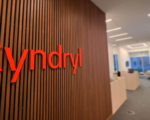Moonshot AI’s rapid progress in developing large language models capable of handling long inputs of text and data has attracted significant attention, culminating in a reported Series B funding round of over $1 billion. This funding round, if accurate, would value the startup at $2.5 billion, making it the recipient of the largest single funding round for Chinese LLM developers on public record.
The startup, known as YueZhiAnMian in China, distinguishes itself by focusing on processing long-form context and responses, an area that has posed challenges for others in the AI field. Its efforts have led to the development of a 100 billion-parameter LLM, launched in March last year, and the introduction of its first chatbot, Kimi, in October. Kimi is claimed to support conversations of up to 200,000 Chinese characters, significantly surpassing the capabilities of other large language models such as OpenAI’s GPT-4-32K.
The reported involvement of major investors such as Alibaba, HongShan (formerly known as Sequoia China), Meituan, and Xiaohongshu in Moonshot AI’s Series B funding round highlights significant interest and support from strategic partners. While HongShan declined to comment on the reports and Alibaba has not responded to requests for comment, Moonshot AI’s founders Yang Zhilin, Zhou Xinyu, and Wu Yuxin have not yet provided a response.
If accurate, HongShan’s participation would be particularly noteworthy, considering Sequoia Capital’s announcement last year regarding the split of its Asian operations. This move comes amid heightened geopolitical tensions and increased scrutiny from the U.S. government on AI deals involving Chinese firms in the U.S. and vice versa. As a result, it’s understandable that investors may be taking a cautious approach in their public statements and activities.

Indeed, the landscape for large language model (LLM) development in China appears to be characterized by a diverse array of contenders, with no clear dominant player emerging yet. This contrasts with the situation in the U.S., where OpenAI currently holds a prominent position in the LLM space.
Investment activity in China’s LLM sector seems focused on diversifying bets, with major players like Alibaba and Tencent backing multiple startups in the field. Alibaba’s investments in Baichuan, Zhipu AI, and 01.AI, along with Tencent’s support for Baichuan, Zhipu, MiniMax, and Light Years Beyond, demonstrate the strategic interest of Chinese internet giants in nurturing LLM technologies.
The significant investment in Moonshot AI, despite its young age, may be attributed to the strong pedigree of its founders, including Yang Zhilin, Zhou Xinyu, and Wu Yuxin. This factor likely instills confidence among investors, motivating them to make substantial bets on the startup’s potential to innovate and succeed in the competitive LLM market.


















